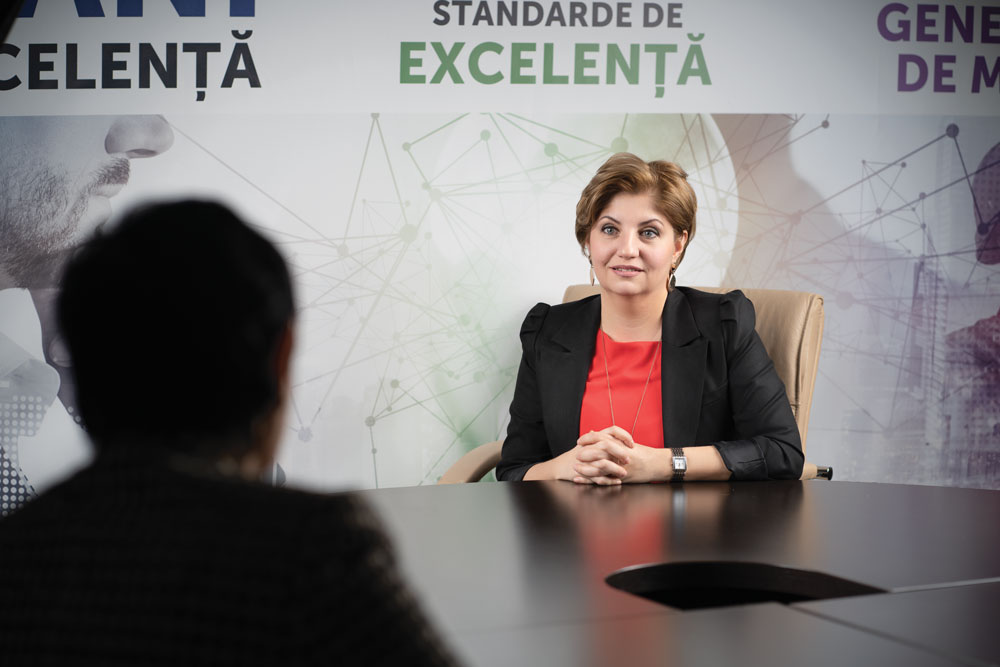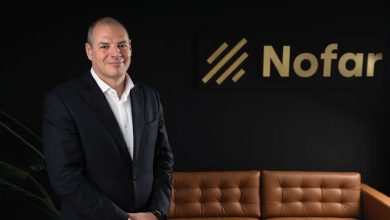Melania Amuza, Nuclearelectrica: Catalysing CO2-free Energy Production in Romania
We discuss with Melania Amuza, Deputy General Director, Commercial and Development with SNN, the business strategy of the company for the upcoming period, the major investments, and projects in order to meet energy efficiency goals in Romania and EU.
Societatea Nationala Nuclearelectrica (SNN) is a state-owned Romanian nuclear energy company incorporated in 1998 by the reorganization of RENEL. The company is under the authority of the Ministry of Energy. The state has 82.49% of the shares and other shareholders have 17.50% after listing the company at the stock exchange in 2013. The field of activity of Nuclearelectrica is the manufacturing of electricity, thermal energy, and nuclear fuel. Nuclearelectrica is the only producer of nuclear energy in Romania.
Nuclearelectrica plays a major role at the national level, contributing over 18% of nuclear energy to total energy production and 33% to total CO2-free energy production in Romania.
Mrs. Amuza is a graduate of the University of Bucharest – Faculty of Law and of the executive education program “Advanced Management Program for Directors” of IAE Business School, Buenos Aires, Argentina. With 23 years of experience, of which over 12 years in management positions within multinational companies with business in Romania in the field of energy and oil & gas, Mrs. Amuza has managed large investment projects, financing security and M&A, especially in the energy field. Within SNN, Mrs. Amuza manages the complex investment projects, financing security, the commercial strategy of the company in relation to the energy market and the licensing activity of the new mining assets operated by SNN.
Dear Mrs. Melania Amuza, you have recently taken over the position of Deputy Chief Executive Officer within SNN, with a lot of experience in the energy sector. What responsibilities does this position involve?
Melania Amuza: This position involves the Commercial (energy transactions) and Development areas, regarding the large investment projects of the company. As you know, Nuclearelectrica has included in its investment program the project of U3 and U4 Reactors, the refurbishment and extension by 30 years of the lifecycle of Unit 1, the Small Modular Reactor (SMR) project, the project of the Tritium Removal Facility and other strategic projects, which are absolutely necessary for the safe operation of the Cernavoda Nuclear Power Plant and other branches of the company. Many of the current investments, approximately 80%, are investments in the continuous improvement of the nuclear security level, which explain the great international performance of Units 1 and 2.
What priority directions does the business strategy of the company include, in the context of including nuclear energy in the EU taxonomy, for the following period?
Melania Amuza: The business strategy of the company mainly includes creating new production capabilities for nuclear energy and extending the lifecycle of the existing ones with a new cycle, and also developing and maintaining the nuclear fuel integrated cycle, which is an essential aspect and a firm competitive advantage for the long-term development strategy of SNN and of Romania, given the challenges of the international context. This objective is essential for the energy security of Romania.
By including nuclear energy in the scope of the EU Taxonomy on Sustainable Financing, the significant role of nuclear energy in ensuring the energy security of the states and in achieving the decarbonization targets was confirmed.
Thus, by the Delegated Act, the major investment projects in the nuclear field, such as the refurbishment of nuclear units, building new capabilities and developing innovating technologies, are deemed as sustainable in order to contribute to the energy transition of the member states.
For this purpose, we are focusing on aligning the investment cycle to these requirements, which are dynamic in nature and will require constant cooperation efforts from the company with several international organizations and regulators from other countries, in order to bring a long-term contribution to a clean and sustainable industry.

How do you see the role of nuclear energy in the energy mix, including the production of hydrogen, in order to achieve the objectives of the European Union for stimulating the transition to an economy with low carbon emissions?
Melania Amuza: The role of nuclear industry in the energy mix of Romania is and will remain substantial, as Romania is one of the countries with tradition in operating the two CANDU units and in the sustainable cooperation with an experienced regulator, such as the Romanian regulator, CNCAN. For this reason, Romania is prepared for accessing new and innovating technologies, such as SMR, and for promoting a successful model in this business line. Besides the clean energy which small modular reactors produce, and which will contribute to the energy security of our country, small modular reactors (SMR) provide optimal conditions for hydrogen production and may contribute to including this fuel into the consumption mix of Romania. By including nuclear energy in the EU taxonomy for sustainable energy, both nuclear energy and the hydrogen that can be produced by SMR are essential contributions for achieving the climate objectives of EU. The national economy will receive a substantial boost, by creating a local supply chain for this project and by including a substantial portion of local content, contributing to the security of the supply chains, which represents a key requirement for a sustainable economy.
Also, Romania has the potential of becoming a catalyst for the development of SMR in the region, and also a basis for ensuring the production of components and their assembly, as well as a training hub for the future operators of this technology.
Romania needs new nuclear capabilities, a clean, resilient, and accessible energy source, as a solution for reaching its decarbonization targets. How will Nuclearelectrica contribute to the reduction of pollution and the increase of energy efficiency in Romania and EU?
Melania Amuza: Nuclearelectrica brings its 25-year contribution to the national energy mix by clean and resilient energy, operated at the highest standards of professional excellence and safety. By creating new production capabilities – U3/U4, extending the lifecycle of Unit 1 and implementing SMR, the contribution of the company to these objectives will be substantial.
Since the start-up of the two Cernavoda reactors, they have produced approximately 200 million MWh and we have avoided the release of 180 million tons of CO2 in the atmosphere, a CANDU unit avoids the release of 5 million tons a year. We estimate that after 2031, when reactors 3 and 4 will become operational and Unit 1 will enter its second lifecycle, in 2029, and after the implementation of the SMR project, after 2028, the contribution of nuclear energy to the total free CO2 emissions energy, in Romania, will be approximately 66%, which means a lot for a single source. However, this is the great and sole advantage of nuclear energy: availability, supply security, back up for renewable resources and ensuring the complementarity of the two sources, the absence of CO2 emissions.
Romania needs new sources of clean energy, in order to achieve its decarbonization targets and to guarantee energy safety and stability, and nuclear energy is an energy source that is clean, stable, safe and accessible.
Romania intends to reduce
- up to 4.59 GWe of energy generated by coals until 2032
- CO2 emissions by 55% in 2030 as compared to the data of 2005
- the dependency on imports from 20.85% to 17.8% until 2030
(PNIESC – National Integrated Plan in the field of Energy and Climate Change, and PNRR – National Recovery and Resilience Plan)
The UNECE report concludes that the nuclear sector has led to the elimination of approximately 74Gt of CO2 emissions in the last 50 years, which amounts almost two years of the total global emissions from energy.
The FORATOM study also states that if the percentage of renewable energy increases by 190% and the percentage of nuclear energy remains unchanged until 2050, Europe will continue to depend on natural gas up to 26% and on coal up to 12% of the necessary energy, both with high CO2 emissions. According to the studies developed by the International Energy Agency and IPCC, nuclear energy continues to increase up to an estimated global level of 17%, from the current 10%, with a constant rate in Europe as well.
Regarding the costs, a NEA-OECD study confirms that extending the lifecycle of nuclear units incurs the lowest cost out of all the sources, including renewable sources, of CO2 (USD 35), compared with wind energy (USD 50) and solar energy (USD 94). New nuclear projects are also competitive regarding the financing costs, with 69 USD/MWh.

Last year, in November, SNN announced the advancement of the project of CANDU Units 3 and 4. What are the main stages of this project and what activities do they involve?
Melania Amuza: Stage I of the project was started by capitalizing and re-operationalizing Energonuclear, occupying technically critical positions, assigning the legal consultancy contract and the Contract with Candu Energy regarding the re-evaluation of the structures, incorporation of project improvements from the perspective of nuclear safety and the definition of standards and specifications for Stage II.
Stage II is called Limited Notice to Proceed – LNTP, with an estimated duration of 18-24 months. Main objectives of Stage II: Developing the critical engineering for defining the project, structuring and contracting the financing and agreeing on a fixed/firm price, obtaining the favourable Opinion of the European Commission after notifying the Project according to Art. 41 of the EURATOM Treaty and a positive decision according to the relevant European provisions on state aid, obtaining the Nuclear Security Authorization for the Construction phase and taking the Final Investment Decision, for implementing Stage III (Construction).
Stage III is the construction stage during 2024-2030/2031 and represents the completion of the investment objective.
The implementation small modular reactors in Romania has created intense pro and con debates among experts, and not only experts. Briefly, what are the benefits of this innovating technology, and also its potential risks?
Melania Amuza: SMR technology based on pressurized water reactors (PWR) uses well-established principles of nuclear technology, by simplifying or eliminating at the same time, some of the costly and complex systems of the existing nuclear power plants, while benefitting from a similar licensing framework. Additionally, SMRs have integrated several improvements compared to PWR reactors, solutions identified in time, after operating them for 50 years, and they respond with improved technology to all the nuclear security risks that have been identified in time.
Also, one of the main benefits of SMR is the fact that they can be built and commissioned more quickly (as the units are manufactured in plants with low activities at the construction site) and financing can be ensured by new innovating systems. Mainly, nuclear security is based on passive systems, which do not require energy in case of serious malfunctions.
Moreover, for SMR there is the possibility of implying smaller construction costs and more competitive operation costs, as they can operate in tandem with renewable plants in energy fleets.
The challenges are requirements and interfaces that need to be clarified between regulatory bodies and by regional and international cooperation and defining implementation strategies that are adequate for each country. The necessity of training the personnel and ensuring regional and international cooperation for this purpose is also an unprecedented effort in the industry.
The great advantage of Romania is its experience of over 25 years in operation at excellence standards and nuclear safety, which now allows us to get involved in the development of small modular reactors in Romania, in partnership with USA.
The social responsibility of the companies from the energy sector involves activities aimed not only at energy production, but also at environment protection. What are the most important CSR projects of SNN in progress?
Melania Amuza: Nuclearelectrica has taken on the role of strategic company, with an important role in the security of the national energy system, committing to act proactively in relation to several stakeholders. SNN constantly maps the interests and concerns of its stakeholders because sustainable development is possible only if SNN produces value for as many target groups as possible.
Thus, investing a share of the annual profit of SNN in CSR actions and sponsorships is an integral part of the development strategy of the company. SNN is also involved in supporting the initiatives of non-profit organizations in fields with social impact on three major directions: education, health, and environment, but also other humanitarian projects.
The main guidelines for CSR actions and sponsorships, in line with the specific nature of SNN’s business, and aimed at promoting development and bringing added value in the communities where the company is operating, have targeted actions in the following areas of interest: education, healthcare and environmental protection. We have tens of projects implemented in these years, and the invested amounts are already of tens of millions of RON and millions of impacted people. We analyze the national context, and we get involved in educational, environment and medical projects, which are absolutely needed in order to impact as many people as possible. Educationally, we want to facilitate the access to education, to improve conditions, develop a new generation of nuclear specialists and careers in this industry. Medically, we invest a lot in medical equipment, in order to provide Romanians access to modern and high-quality medical conditions. Regarding the environment contribution, beyond our direct impact by delivering 33% of the production of national energy without CO2 emissions, we are also involved in forestation projects.
What can you tell us about the recent financial results, estimates and short/medium/long term prospects?
Melania Amuza: The financial results for 2021 are satisfactory and transparently reflect the evolutions of the energy market in Romania and Europe, as well as the structure of the energy markets in Romania. We must underline that Nuclearelectrica supports the diversity of the energy markets and of instruments as efficient methods for supporting its investment objectives.
The financial results also reflect the diligent level of using capitals and financing sources. As you know, starting with 2021, the company has a BBB- rating granted by Fitch, which is the same as the sovereign country rating of Romania. This rating positions the company in a very good area for obtaining financing sources for its large investment projects.
Moreover, the company will direct approximately 50% of its profits towards supporting its large investment objectives, which will be partially financed by own sources and partially from funding sources. This trend will be present during the capital-intensive periods of the investment cycles. Moreover, we estimate that after these periods, we will be able to maintain a financial and investment financial model which can position Nuclearelectrica among the companies which are very attractive for multiple types of financing, providing sustainable profitability.







